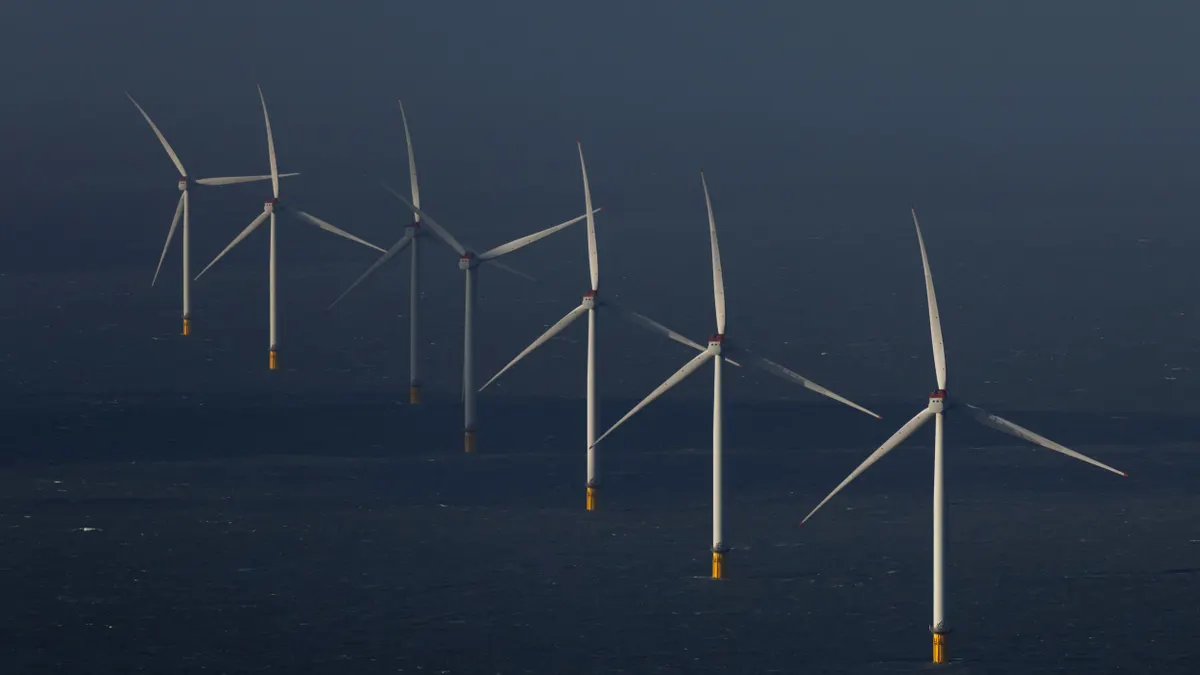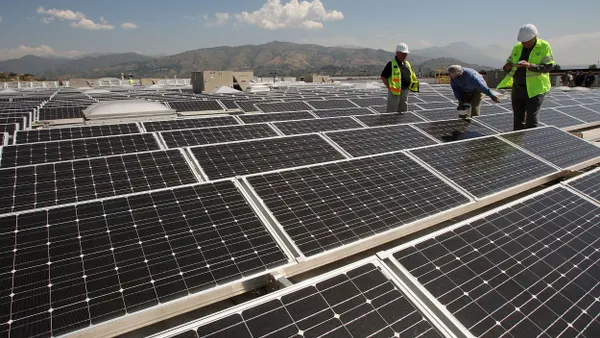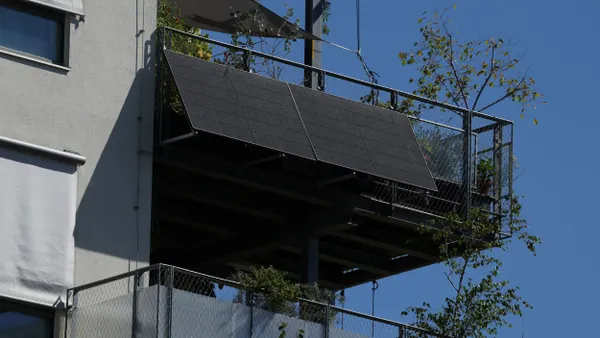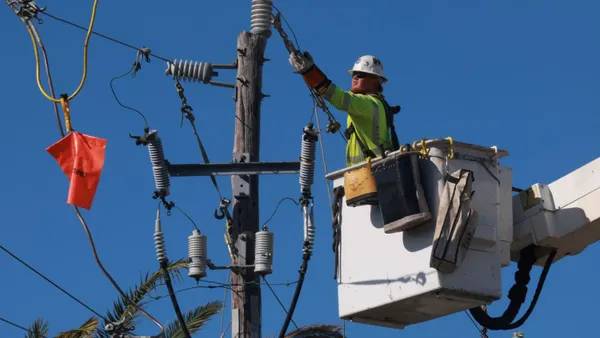Dive Brief:
- The Trump Administration ratcheted up its war against offshore wind this week, saying in court filings that it intends to revoke the permit of New England Wind, a project planned near the coast of Massachusetts and Rhode Island that would have generated up to 2.6 GW of power.
- The administration has targeted at least five different wind projects off the East Coast in various stages of development through stop work orders or moving to revoke permits.
- The Danish renewable energy company Ørsted filed a lawsuit this week asking a judge to immediately lift a stop work order the administration issued to its project, Revolution Wind, a 700-MW project off the coast of Rhode Island and Connecticut that Ørsted says is 80% complete.
Dive Insight:
The Trump administration has offered a variety of theories in different settings for its actions against wind projects, including invoking national security and the safety of marine wildlife. In court filings, wind energy developers have made similar allegations that the administration’s actions are driven by the politics and preferences of President Donald Trump, not substantiated problems with the projects.
Some analysts have warned that the administration’s actions against permitted wind projects could affect energy project financing across the board — not just for wind.
“The current administration is clearly pushing an agenda favoring fossil fuels and nuclear power,” Dennis Wamsted, an analyst with the Institute for Energy Economics and Financial Analysis, wrote in a Sept. 3 post. “But a banker being asked to loan money for such a project — whether a multi-billion-dollar interstate gas pipeline or a new nuclear facility — likely will think hard before lending money to a project that could be stopped at the 11th hour by a future administration.”
Wamsted said the uncertainty around permitting and construction is eroding trust in the federal government and is likely to raise financing costs for some projects.
The Oceantic Network, an offshore wind trade group, said in a statement that the government was undermining a “40-state, $25 billion domestic supply chain while holding American business investments hostage.”
“Halting construction and revoking permits on approved projects after years of thorough agency review will raise electricity prices for millions across the country, jeopardize billions of dollars in private investment, threaten our national shipbuilding, steel, and manufacturing supply chains, and undermine our nation’s energy security,” said Sam Salustro, Oceantic’s senior vice president of policy and market strategy. “This is from a political playbook that should make every industry worry whether they will be targeted by this administration or the next.”
On Thursday, Ørsted filed a lawsuit in the U.S. District Court for the District of Columbia seeking emergency injunctive relief and asking the judge to vacate an Aug. 22 stop work order issued by the Bureau of Ocean Energy Management.
In its complaint, the company said it spent approximately $5 billion and went through a comprehensive review process that spanned three presidential administrations before receiving approval from 15 federal and state agencies. It said it will incur over $1 billion in breakaway costs if the project is cancelled, and said the stop work order meets the Administrative Procedure Act’s standard for an unlawful, arbitrary, and capricious action.
“If unabated, the Stop Work Order will inflict devastating and irreparable harm on Revolution Wind,” the complaint says. “The Stop Work Order also impairs Revolution Wind’s ability to meet its contractual obligations to deliver power pursuant to twenty-year Power Purchase Agreements.”
ISO New England issued a statement last month that expressed concern over the stop work order issued to Revolution Wind, saying, “The ISO is expecting this project to come online and it is included in our analyses of near-term and future grid reliability.”
“Delaying the project will increase risks to reliability,” it said.
Earlier this week, BOEM joined with a group that had been suing it to stop the New England Wind project, asking a judge to issue a new briefing schedule in light of “Federal Defendants’ forthcoming motion for voluntary remand.”
BOEM is “in the process of reconsidering its approval” for the New England Wind project, it said, and plans to “move no later than October 10 to remand and, separately, to vacate BOEM’s [...] approval.”
New England Wind’s developer, Avangrid, had not filed a response as of Thursday, according to the docket.















